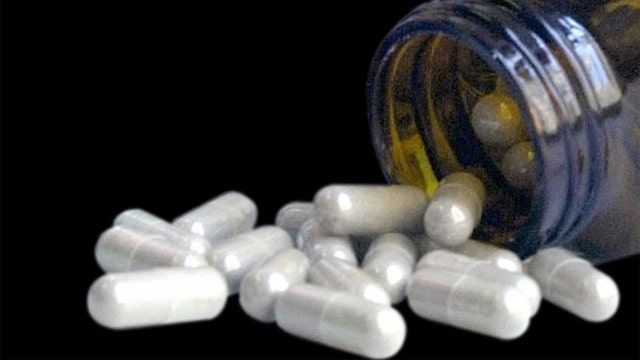New warning over testosterone drugs
Doctors warned against over-prescribing the popular supplements
The U.S. Food and Drug Administration (FDA) is warning men about testosterone replacement products increasing their risk for heart attacks and strokes. The agency is urging doctors and the makers of these products to properly inform patients about the possibility of developing these life-threatening conditions.
The FDA became aware that testosterone replacement drugs are not always being used to treat low testosterone caused by a certain medical condition, but often to treat symptoms of low testosterone as a result of aging. The agency says it has not determined the benefits and safety for this type of use, therefore, they are cautioning doctors to prescribe testosterone only to men with low testosterone caused by a medical condition which is confirmed by laboratory tests -- not just to men looking to relieve low testosterone symptoms related to aging.
A November 2013 study published in the Journal of American Medical Association found a 30 percent increased risk of death, heart attack or ischemic stroke among men who were taking testosterone replacement drugs, compared to those who were not taking them. Another study from the National Institutes of Health (NIH) found that men over 65 who were taking testosterone replacement drugs had double the rate of heart attacks, compared to men who were not taking them.
Testosterone replacement therapies generate about $2 billion in the U.S. each year - a major increase within the past decade. The FDA estimates that 1.5 million men were taking a testosterone replacement product in 2013, which is nearly double the number of men who were taking it in 2010. Apparently, only about 25 percent of these men had not been tested for or diagnosed with low testosterone, meaning they were taking the drug based on symptoms, rather than a diagnosed medical condition.
The FDA says that the risks associated with testosterone replacement drugs are not fully understood and that with the market growing so quickly, it’s important to determine exactly what role they play. The risks we are currently aware of include an increased risk for blood clots and stroke, sleep apnea, acne, breast enlargement, and possibly an increased risk for prostate cancer.
Millions of men suffer from low testosterone as they age – a common and natural part of the aging process. Symptoms include low libido, erectile dysfunction, reduced energy and depression, and loss of muscle mass. For an adult male, the normal testosterone level should be between 300 and 1,000 ng/dL. Testosterone replacement therapy in the form of gels, injections, patches or pills can help increase the testosterone level until it is within normal range. Testosterone replacement therapy can increase libido and ability to maintain an erection, increase bone strength, improve osteoporosis, improve mood and energy, and reduce irritability and anger.
The bottom line is: Testosterone replacement therapy is not recommended as a way to treat or relieve symptoms of low testosterone related to aging. It should only be used to treat a diagnosed medical condition that has been confirmed by a blood test or other lab test. Testosterone products should also only be taken under the supervision of a doctor who has prescribed it.








































